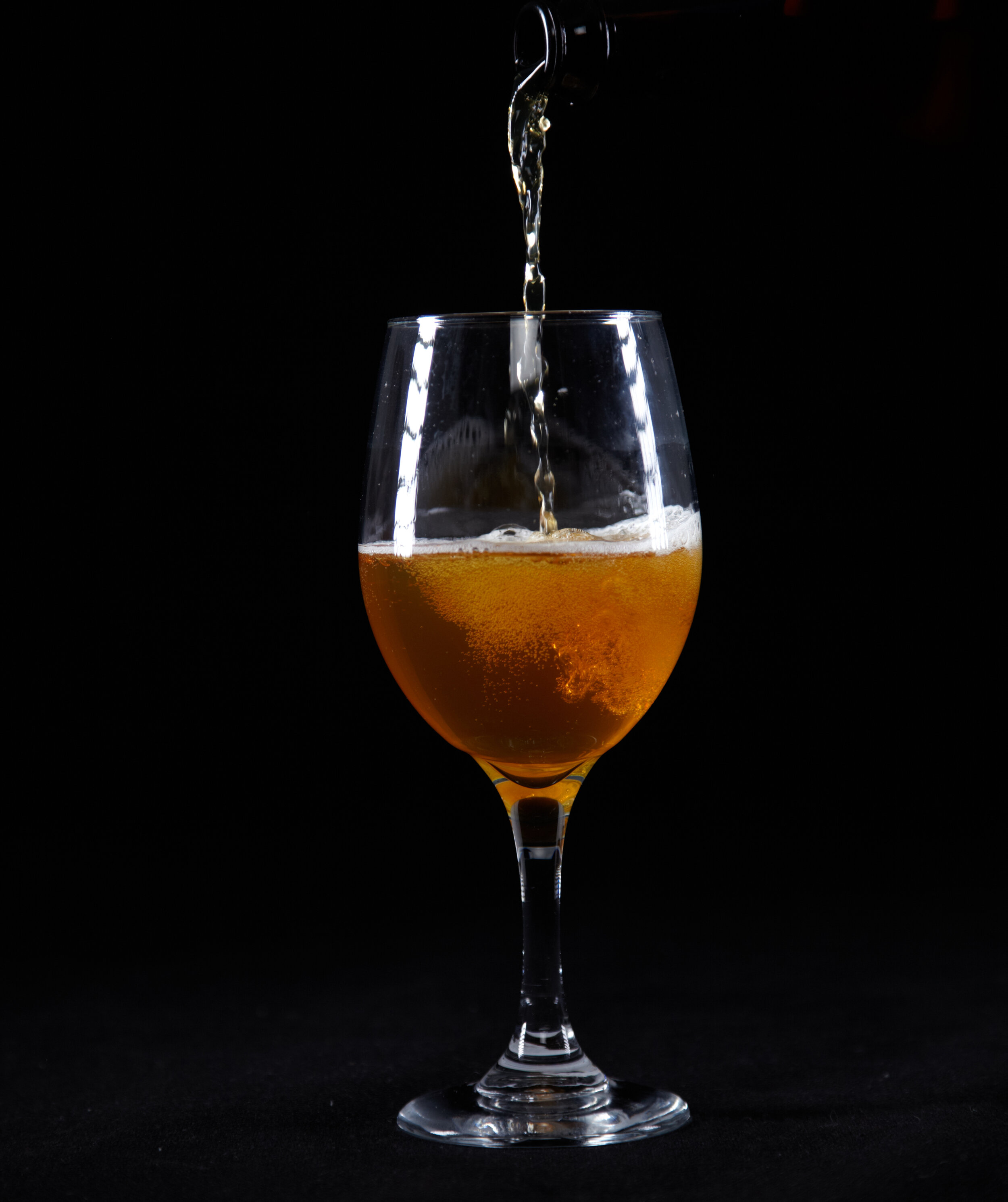Gold Rush Cider: It's All About 'Dem Apples!
Try this Colorado cider made entirely from apples grown up high
All images courtesy Snow Capped Cider.
If I were to tell you the cider sector is just as vast and nuanced as the wine world, I’m sure I’d get some strange looks. But the fact is, there are thousands of ways to make both types of alcoholic products, and a common denominator between the two is it all starts with the fruit.
Just like the myriad of grape varieties grown by wineries, there are dozens of apple species and styles—with only a very few that produce quality, tasty traditional cider. Most of these apples—called cider varietals or cider apples—originated in France and England, but there is one Colorado farm and cidery that has cultivated a somewhat cantankerous crop stateside, and now boasts one of the largest elevated cider apple orchards in the United States—Snow Capped Cider.
This past summer, Snow Capped released Gold Rush, a new, high-end cider made 100 percent from cider apples grown in the company’s 109-year-old orchards located in Cedaredge on the Western Slope of Colorado. The canned product sold out immediately, according to co-owner Kari Williams, who operates the cidery and farm with her husband Ty, and they are in the process of re-canning it already.
“Together with the demand for that product and the length of time it takes to get cans these days—which is our biggest problem—we could sell a lot more,” Williams says. “I think Gold Rush is going to be one of our top-selling ciders. It does seem to intrigue the public, and we’ve had a lot of great reviews from different prominent cider folks. I’ve even heard from some other cider makers about the product.”
Kari Williams
The cider is crisp and bright, offering a natural sweetness many cideries try to replicate with added flavorings. It drinks like a sparkling white wine, with a clean and light mouthfeel followed by a semi-dry finish. It’s tasty, and it packs a punch at 6.9% ABV.
The Gold Rush name was, of course, inspired by the Colorado Gold Rush. Using strictly cider apples for an American cider is somewhat of a rare thing. Many U.S. cideries use either heritage apples, culinary apples (found at the grocery) or juice concentrate—or perhaps a combination of all three. But the traditional way of making cider, which dates back hundreds of years (and beyond), involved the cider apple.
These apples, according to Williams, are grown specifically for making hard cider. “Big growers aren’t growing them because they’re not profitable,” she says. “They’re harder to grow, most of them are not edible—they’re lumpy, ugly-looking things.”
But they make damn fine cider.
“The difference between making hard cider with cider apples rather than culinary apples is like making wine with a table grape as opposed to a wine grape,” Williams continues. “They’re just not as readily available, so that’s one of the reasons we named it Gold Rush—finding a cider apple is like finding gold. It’s a very rare thing to find for a cider maker. There is much more acidity, more tannins to these apples, and the flavor profiles are intense to ferment and make cider from.”
Williams and her husband started making cider with their estate-grown apples in 2014. Right away they garnered attention in the cider world, winning numerous awards in several national contests (hint: the NY International Cider Competition is slated for February, 2021).
It took them many years to find the right cider apples that could grow at an elevation of 6,130 feet. But it turns out that challenge is also what makes the apples so flavorful. “At this elevation, the UV causes the trees to feel like they’re constantly in stress, so they’re pumping acid throughout the whole tree,” says Williams. “That causes the fruit to come in with a very high sugar content and a low pH (acidity)—it’s a cider maker’s dream.”
That’s the main reason Snow Capped does not add any extra flavors or sugars to its ciders. And if Snow Capped makes a flavored cider, like the Colorado Peach offering, the fruit is grown on the family’s nearrly 800-acre farm as well. In fact, they are Colorado’s largest apple-growing operation and boast more than 100 varieties of apples and over 40 varieties of peaches grown over the years.
In the last few months, the Williams have weathered the COVID crisis by focusing on the day-to-day farm operations, relocating some of their team members from cider production to general farmhands.
“They absolutely loved it,” says Williams. “They mowed, sprayed weeds, helped plant 65,000 new apple trees, helped fight off frost … All of the guys were just absolutely blown away and amazed at what we have to do, especially at this elevation. It was so awesome and a great team-building exercise for everyone. They have a whole different perspective on what we do as a fruit-growing family.”
For now, the production crew is back at work, making more Gold Rush and the company’s seven other cider offerings for the clamoring Snow Capped fans.
To order Gold Rush and other products, go to the Snow Capped website. They’re now shipping orders to 38 states, and Williams promises more Gold Rush will be available soon.



